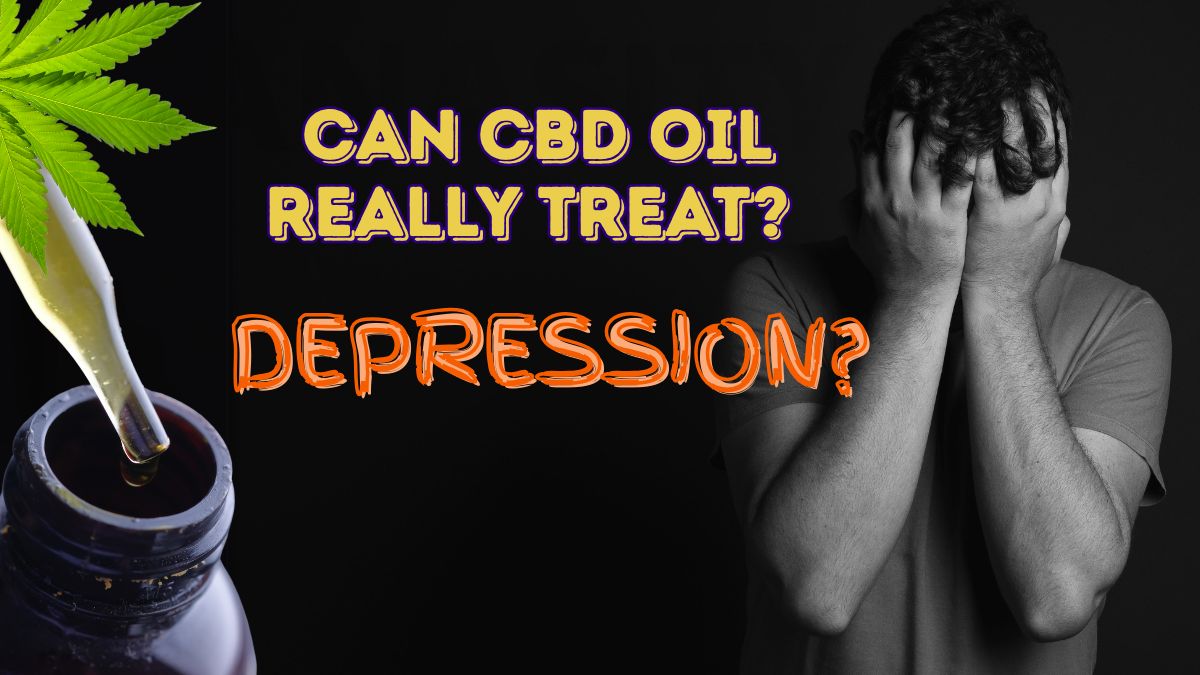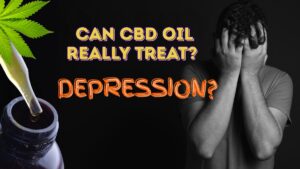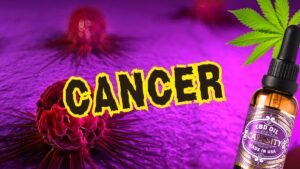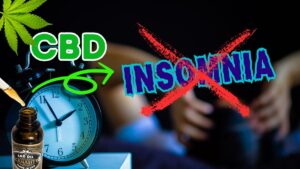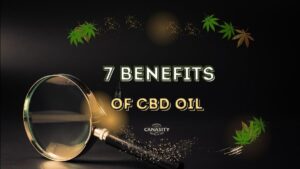When the colors of life seem to fade, when the activities you once loved lose their meaning, and a heavy blanket of apathy feels impossible to lift… Depression is far more than just “feeling sad”; it’s a complex and pervasive mental health condition affecting millions worldwide.
While conventional treatments help many, some individuals seek natural approaches to support their therapy or explore complementary options. In this search, the relationship between CBD and depression has drawn intense interest from both the scientific and wellness communities.
So, does CBD help depression? In this article, we strike a balance between hope and realism to examine the potential effects of CBD on the brain chemistry related to depression, through a responsible lens and in light of the available scientific evidence.
What Is Depression: More Than Just “Feeling Sad”
Depression, known medically as major depressive disorder (MDD), is a common and serious mood disorder that negatively affects how you feel, think, and act. Unlike temporary sadness, depression is persistent and can manifest through symptoms such as:
- A persistent feeling of sadness, anxiety, or “emptiness”
- Loss of interest or pleasure in activities once enjoyed
- Changes in appetite and weight
- Trouble sleeping or oversleeping
- Loss of energy and constant fatigue
- Feelings of worthlessness or guilt
- Difficulty thinking, concentrating, or making decisions
These symptoms can severely impact a person’s work, social, and family life. Depression is an illness that requires professional help, such as psychotherapy and/or medication.
What Is CBD (Cannabidiol) and the Body’s Mood-Regulating System?
What is CBD? Cannabidiol is a natural, non-psychoactive compound found in the industrial hemp plant. It works by interacting with our body’s Endocannabinoid System (ECS). This system is responsible for regulating many vital processes, including mood.
Research suggests that the functioning of the ECS may be impaired in conditions like chronic stress and depression. It is believed that by modulating this system, CBD may indirectly support the mechanisms that regulate mood.
CBD and Depression Research: How Might It Affect Brain Chemistry?
Research into cannabidiol for depression explores its potential not as a “cure,” but as a molecule that could influence brain chemistry. The hypothesis that CBD may act faster and have fewer side effects than conventional antidepressants is a key motivation for this research.
Its Role in the Serotonin System: A Natural Modulator?
The most well-known mechanism in depression treatment is increasing serotonin levels in the brain. Serotonin is a neurotransmitter that regulates mood, happiness, and well-being. Many antidepressants (like SSRIs) work by helping serotonin remain in the brain longer.
Animal studies indicate that CBD doesn’t directly boost serotonin levels, but it may help the brain’s 5-HT1A serotonin receptors respond better to the serotonin that is already present. This means it could enhance the brain’s own mood-regulating capacity.
Brain-Derived Neurotrophic Factor (BDNF) and Neurogenesis
This is a more technical but crucial point. BDNF is like a “fertilizer” for the brain, supporting the growth of new neurons and the health of existing ones. In people with chronic depression, the hippocampus (a brain region associated with memory and emotion) often shrinks, and BDNF levels are low. One of the effects of modern antidepressants is thought to be promoting the creation of new neurons (neurogenesis) by increasing BDNF levels.
Pioneering researchsuggests that CBD may also increase BDNF levels and support neurogenesis. This is an exciting possibility, indicating that CBD might target not just the symptoms, but also the physical effects of depression on the brain.
Managing Stress and Cortisol
Chronic stress can lead to high levels of cortisol (the stress hormone), which in turn increases the risk of depression. CBD’s stress-reducing and cortisol-regulating effects may provide an indirect benefit in combating this significant underlying factor of depression.
How to Use CBD Oil for Depression: Dosage and Methods
The answer to how to use CBD oil for depression requires consistency and patience. Unlike with anxiety, the effects on depressive symptoms are generally not immediate, and regular use may be necessary to see a noticeable improvement.
- Starting Dose: It’s best to start with a low dose (e.g., 15-25 mg per day) and observe your body’s response over several weeks.
- Consistency: For the best results, taking CBD oil at the same time every day helps maintain consistent levels in your body.
- Dose Increase: If you don’t see an effect after a few weeks, you can slowly increase the CBD oil dosage for depression after consulting with your doctor.
CBD and Antidepressants: Is It Safe to Use Them Together?
This is one of the most critical safety topics. Antidepressants and CBD can interact. Many antidepressants are metabolized by cytochrome P450 enzymes in the liver. CBD can also affect these enzymes, which can alter the level of the antidepressant in your blood (either increasing or decreasing it). This could increase the drug’s side effects or reduce its efficacy.
Therefore, if you are taking an antidepressant, you must NEVER use CBD without the explicit approval and supervision of your doctor. Never stop taking your current medication on your own.
Potential Side Effects and What to Consider
CBD is generally well-tolerated, but it can cause mild side effects in some people. These include dry mouth, drowsiness, changes in appetite, and diarrhea. These effects often subside as the body adjusts or when the dose is adjusted.
Integrating CBD into a Holistic Approach: Therapy and Lifestyle
CBD is not a magic bullet for depression. The most effective approach is a holistic plan that combines CBD with evidence-based treatments.
- Psychotherapy: Talking to a therapist is one of the most effective ways to understand the underlying causes of depression and develop coping mechanisms.
- Lifestyle Changes: Regular exercise, a balanced diet, and healthy sleep habits have proven effects on improving mood.
- Natural Support: As part of this holistic approach, CBD can be a natural support that helps the body find its balance.
A Guide to Choosing High-Quality CBD Products
It is essential that a product you use for your mental health is pure and safe.
- Third-Party Lab Testing: Review the product’s Certificate of Analysis (CoA).
- Organic Hemp: Ensure the product is made from organic hemp plants.
- THC Content: Products with 0% THC are the safest choice to avoid unwanted psychoactive effects.
Brands that prioritize transparency and quality, like Canasity, can offer reliable products that meet these standards.
Conclusion: What is CBD’s Place in the Fight Against Depression?
So, does CBD help with depression? Current scientific evidence shows that CBD is not an approved treatment for depression, but it is a promising compound with the potential to positively affect systems related to brain chemistry and mood (like serotonin and the ECS).
The fight against depression is a serious journey that requires professional guidance. On this journey, CBD may be a complementary tool to be considered alongside cornerstones like psychotherapy and a healthy lifestyle, but only under the supervision of a doctor. Remember, the most important step you can take on this path is asking a professional for help.
For more information, visit our FAQ page: https://canasity.com/faq/
Frequently Asked Questions (FAQ)
- Can CBD replace antidepressants? No. CBD is not a substitute for prescribed antidepressants, and you should never change your current treatment without your doctor’s approval. CBD can only be considered a complementary support under a doctor’s guidance.
- How long does it take to see the effects of CBD on depression? It may not provide instant relief. It often takes several weeks of consistent, regular use for the effects on mood to become noticeable.
- Is the same CBD product used for anxiety and depression? Generally, yes. Since both anxiety and depression involve similar brain pathways (especially the serotonin system), the same high-quality, broad-spectrum CBD products may offer potential support for both conditions.
- Will CBD improve my mood instantly? No. CBD is not a substance that instantly “improves” mood. Its effect is more about contributing to a general sense of well-being over time by supporting the body’s own balancing systems.
- What is the best CBD product for depression? The best product is one that has been third-party tested, is made from organic hemp, and contains 0% THC. Oils and capsules are the most common forms for consistent dosing.
- Is CBD legal and safe? CBD products with 0% THC are legal food supplements in many countries, including the US. According to the World Health Organization, pure CBD is generally well-tolerated and has a low-risk profile.
- Can CBD increase my motivation? Lack of motivation, a symptom of depression, may improve as the underlying mood improves. CBD cannot be said to be a direct “motivation booster,” but it may help indirectly.
- What dose should I start with? Everyone is different, so it’s best to start with a low dose (e.g., 15-25 mg per day) and monitor your body’s response. Always consult your doctor before adjusting the dosage.
Scientific Evidence and Sources Cited in the Article:
- Crippa, J. A., et al. (2018). Translational Investigation of the Therapeutic Potential of Cannabidiol (CBD): Toward a New Age. Frontiers in immunology.
- García-Gutiérrez, M. S., et al. (2020). Cannabidiol: A Potential New Alternative for the Treatment of Anxiety, Depression, and Psychotic Disorders. Biomolecules.
- Linge, R., et al. (2016). Cannabidiol induces rapid-acting antidepressant-like effects and enhances cortical 5-HT/glutamate neurotransmission: role of 5-HT1A receptors. Neuropharmacology.
- Sales, A. J., et al. (2018). Cannabidiol Induces Rapid and Sustained Antidepressant-Like Effects Through Increased BDNF Signaling and Synaptogenesis in the Prefrontal Cortex. Molecular neurobiology.
- Brown, J. D., & Winterstein, A. G. (2019). Potential Adverse Drug Events and Drug–Drug Interactions with Medical and Consumer Cannabidiol (CBD) Use. Journal of Clinical Medicine.
- Iffland, K., & Grotenhermen, F. (2017). An Update on Safety and Side Effects of Cannabidiol. Cannabis and Cannabinoid Research.
- Moltke, J., & Hindocha, C. (2021). Reasons for cannabidiol use: a cross-sectional study of CBD users… Journal of cannabis research.
Last Updated: July 29, 2025
Author: The Canasity Science Team (Reviewed by experts with 7 years of experience in cannabinoid research.)
Vital Warning: This article is not medical advice and does not recommend a treatment for depression. Depression is a serious medical condition that must be diagnosed and treated by a doctor or mental health professional. Before using CBD oil or any supplement, especially if you are taking a prescription medication like an antidepressant, you must consult your doctor. Never change or discontinue your current treatment without your doctor’s approval.

